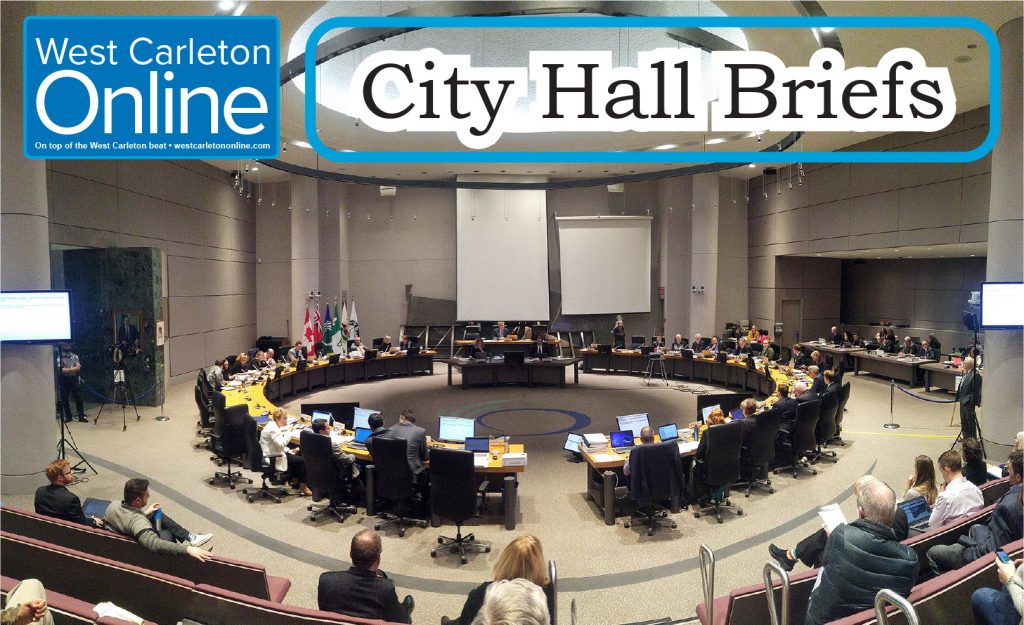Protective Services briefs: Volunteer firefighters to become casual, False alarm strategy
Special to WC Online
CITY HALL – The city’s The Emergency Preparedness and Protective Services committee (EPPSc) will recommend council approve the motion classifying volunteer firefighters as casual city employees.

“The EPPSc approved a proposal to convert rural firefighters’ employment status with the city from volunteers to casual employees,” city staff released in a statement following today’s (Feb. 15) regular committee meeting. “This would help the city’s efforts to retain skilled rural firefighters. By integrating rural firefighters into its workforce, the city would give them access to enhanced compensation and recognize the vital service they provide as emergency responders.”
As casual employees, rural firefighters would be eligible to receive pension and benefits through the Ontario Municipal Employees Retirement System, the Canada Pension Plan and Employment Insurance, as well as vacation pay. West Carleton Online wrote about the issue in more detail yesterday (Feb. 14).
Ward 5 Coun. Clarke Kelly spoke in favour of the move.
“Rural firefighters respond to many different types of emergencies and are extremely active in various community events and initiatives,” Kelly said following the approval of the motion. “They are vital to life in rural wards including West Carleton-March and we are all grateful for their service. Today’s changes send the signal that we care about them and appreciate what they do. Thank you to Ward 5 firefighters, Chris Burke and Fred Carmosino, for appearing at committee today (Feb 15) to explain what these changes will mean for our rural fire service and for the great work you have done to get us here.”
The EPPSc also approved a strategy to reduce the number of false fire alarms in Ottawa, including a fee for false alarms.
“False fire alarms are a risk to public safety, triggering unnecessary responses by emergency services,” staff said. “Out of the nearly 30,000 calls Ottawa Fire Services (OFS) responded to in 2022, more than 10,000 were for false alarms. Most could have been prevented by proper maintenance of the alarm system.”
The proposed fee would apply to nuisance alarms – the most common type, caused by equipment malfunction or negligence. It would not apply to alarms outside the control of the owner, such as those caused by accidents, weather or vandalism. The fee would only apply at commercial, institutional, industrial or multi-residential properties. It would not apply at residential single-family homes, townhomes and condominiums that do not require a fire alarm system under the Ontario Building Code.
“Offences at the same property within a calendar year would be subject to escalating fees,” staff said.
- First false alarm: no fee. Ottawa Fire Services will provide owners with information about proper use and maintenance of the alarm system.
- Second false alarm: $500
- Third false alarm: $1,000
- Fourth and subsequent false alarms: $1,500
The fee for false fire alarms would be added to the existing fees and charges bylaw and would come into effect on Monday, July 1.
“An initial awareness campaign would be followed by a grace period to ensure a smooth transition,” staff said. “In addition, OFS would add two new fire prevention officers and increase engagement with property owners to educate them on how to prevent false alarms and maintain compliance with the Ontario Fire Code. This is expected to reduce false fire alarms by 10 to 20 per cent over the next three years. Staff would evaluate and report back on the effectiveness of the strategy by 2027.”
The EPPSc also received an update on the transition to provincial oversight of towing and vehicle storage as of Jan. 1. The city’s licensing system for the towing sector has been fully replaced with the province’s new certification system for tow service operators, tow truck drivers and vehicle storage operators. Residents can find out more about their rights when getting a tow, and can submit a complaint on the Province of Ontario’s website.
“As a result of the transition, the EPPSc approved various minor amendments to the licensing bylaw, to repeal towing-related provisions that are no longer required, and another amendment to continue prohibiting private parking enforcement agencies that are licensed by the city from being tow providers,” staff said.
Reports requiring approval will rise to council on Wednesday, Feb. 21.










